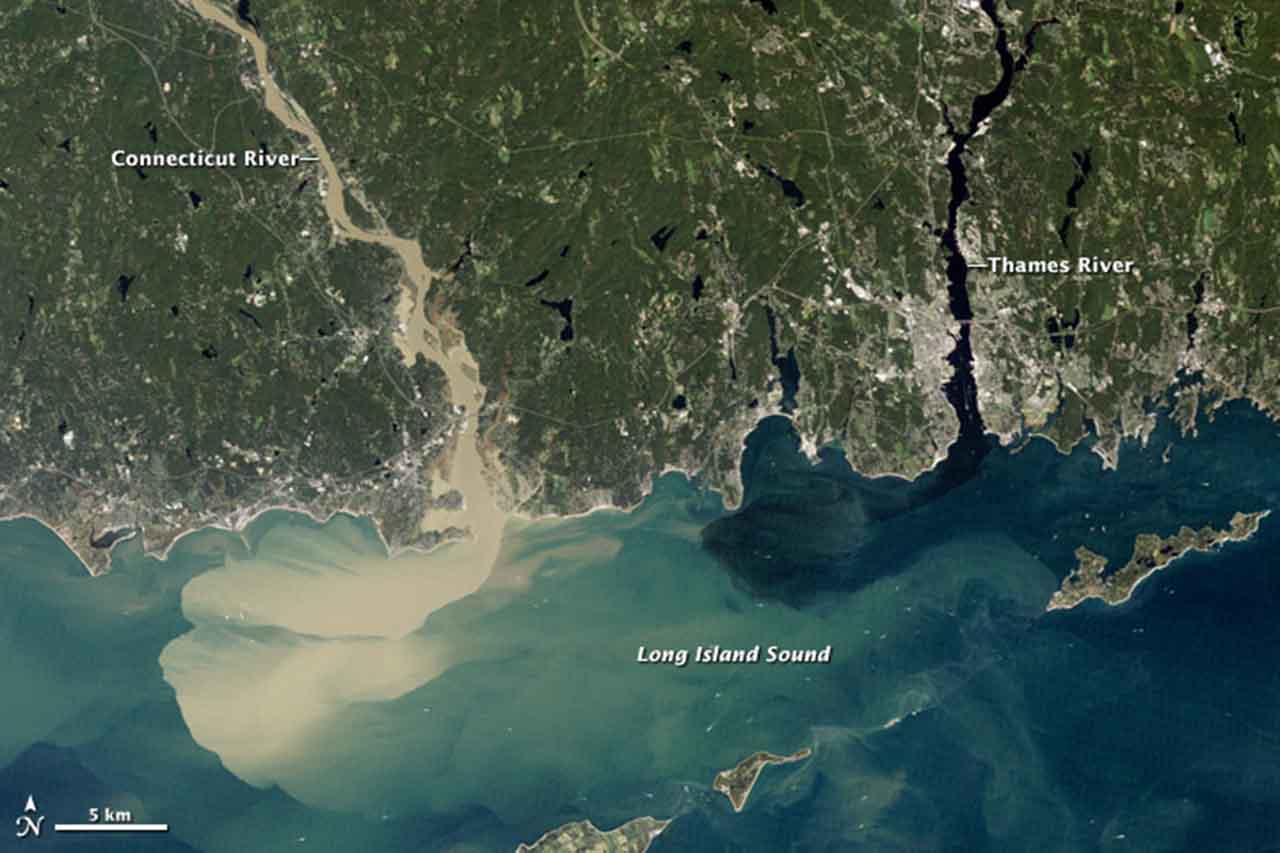By examining decades' worth of river level and tidal data from gauges installed throughout the eastern United States. and combining that data with information on water density, salinity, and the Earth's rotation, they created a mathematical model that describes the link between river discharge and sea level on an annual basis.
Simulations are simulations, the model may or may not be realistic, but it affirms what you probably guessed; the amount of water that comes out of a river annually can raise or lower coastal mean sea level by several centimeters.

Connecticut River and coastal area full of rainwater from Hurricane Irene, which drenched New England in August 2011, the Connecticut River sent large amounts of muddy sediment into Long Island Sound. Photo by NASA Earth Observatory
The study found the majority of that sea level change occurs on only one side of a river's mouth. Since freshwater is naturally less dense than saltwater, river outflow floats along the ocean's surface, where the Earth's rotation forces it to turn sharply along the coast. In the northern hemisphere, that water follows the right hand side of the river; in the southern hemisphere, the left hand side. In both cases, the freshwater forms a current that pushes water up against the shoreline, raising localized sea levels in the process.
At the moment, the model is still just a proof-of-concept, and has only been used to calculate average sea level on an annual basis, but it could already help calculate the effects of sea level rise on certain coastal regions. That data is missing from current satellite measurements, since the resolution of existing sensors isn't fine enough to get accurate readings of ocean height within a few miles of the coast.
Ultimately, the scientists hope to consider more detailed and granular data, so they can understand how individual events, like a hurricane or massive rainfall, might affect ocean levels.





Comments